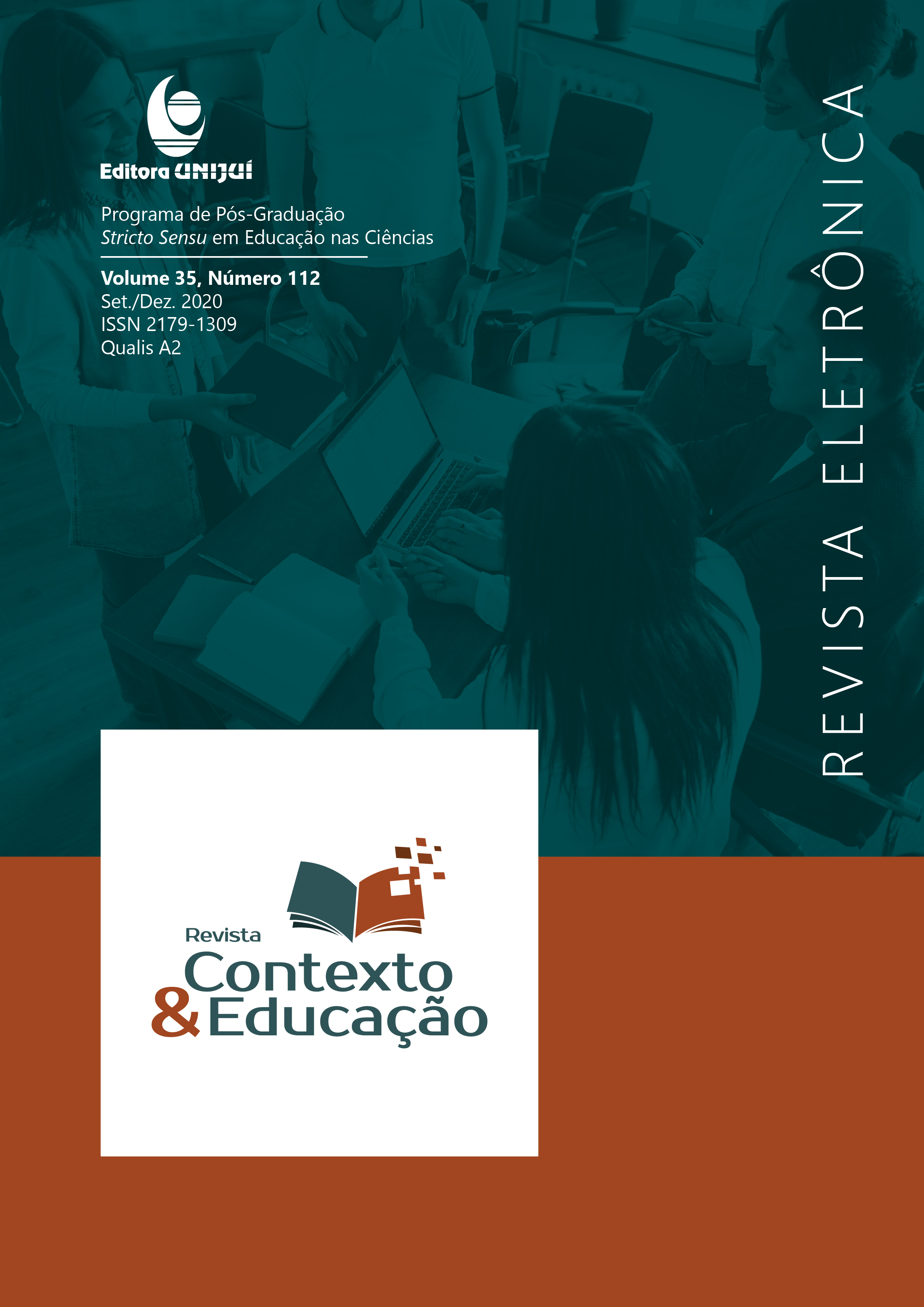CONCEPÇÕES E PRÁTICAS RELATIVAS AO CURRÍCULO INTEGRADO NAS PRÁTICAS COMO COMPONENTES CURRICULARES EM CURSOS DE LICENCIATURA DE UM INSTITUTO FEDERAL DE EDUCAÇÃO
DOI:
https://doi.org/10.21527/2179-1309.2020.112.66-81Keywords:
Currículo Integrado; Formação de Professores; LicenciaturaAbstract
O presente trabalho apresenta os resultados obtidos junto a um projeto de pesquisa que tem como objetivo identificar e compreender as concepções de currículo integrado presentes em cursos de Licenciatura de um Instituto Federal de Educação situado no estado do Rio Grande do Sul. A pesquisa apresenta natureza qualitativa, sendo as fontes de coleta de dados documentos pertencentes a dois cursos da área de Ciências da Natureza desta instituição. Foram também realizadas entrevistas com docentes que ministram as disciplinas de Prática enquanto Componente Curricular (PeCC) nos cursos mencionados. Como resultados têm-se que as PeCC se constituem como um dos principais espaços onde a articulação e a integração de conhecimentos pode ser realizada nas Licenciaturas desta instituição, entretanto, ainda são poucas as experiências de integração desenvolvidas nestes espaços, visto que existem dificuldades diversas, entre as quais, relacionadas com a estrutura organizacional dos cursos e da instituição. Algumas experiências de integração que acontecem nas PeCC estão associadas a aproximações teóricas e afinidades entre os docentes e entre as ementas das componentes envolvidas. Neste sentido, os professores desenvolvem o trabalho conforme compreensões individuais, o que sinaliza para a falta de unidade de ação e compreensão coletiva sobre o trabalho a ser desenvolvido.
Downloads
Published
How to Cite
Issue
Section
License
By publishing in Revista Contexto & Educação, authors agree to the following terms:
All works are published under the Creative Commons Attribution 4.0 International License (CC BY 4.0), which allows:
Sharing — to copy and redistribute the material in any medium or format;
Adaptation — to remix, transform, and build upon the material for any purpose, even commercially.
These permissions are irrevocable, provided that the following terms are respected:
Attribution — authors must be properly credited, a link to the license must be provided, and any changes made must be indicated.
No additional restrictions — no legal or technological measures may be applied that legally restrict others from doing anything the license permits.
Notices:
The license does not apply to elements that are in the public domain or covered by legal exceptions.
The license does not grant all necessary rights for specific uses (e.g., image rights, privacy, or moral rights).
The journal is not responsible for the opinions expressed in the articles, which are the sole responsibility of the authors. The Editor, with the support of the Editorial Board, reserves the right to suggest or request modifications when necessary.
Only original scientific articles presenting research results of interest that have not been previously published or simultaneously submitted to another journal with the same purpose will be accepted.
Mentions of trademarks or specific products are intended solely for identification purposes and do not imply any promotional relationship by the authors or the journal.
License Agreement (for articles published from October 2025): Authors retain the copyright to their article and grant Revista Contexto & Educação the right of first publication.


